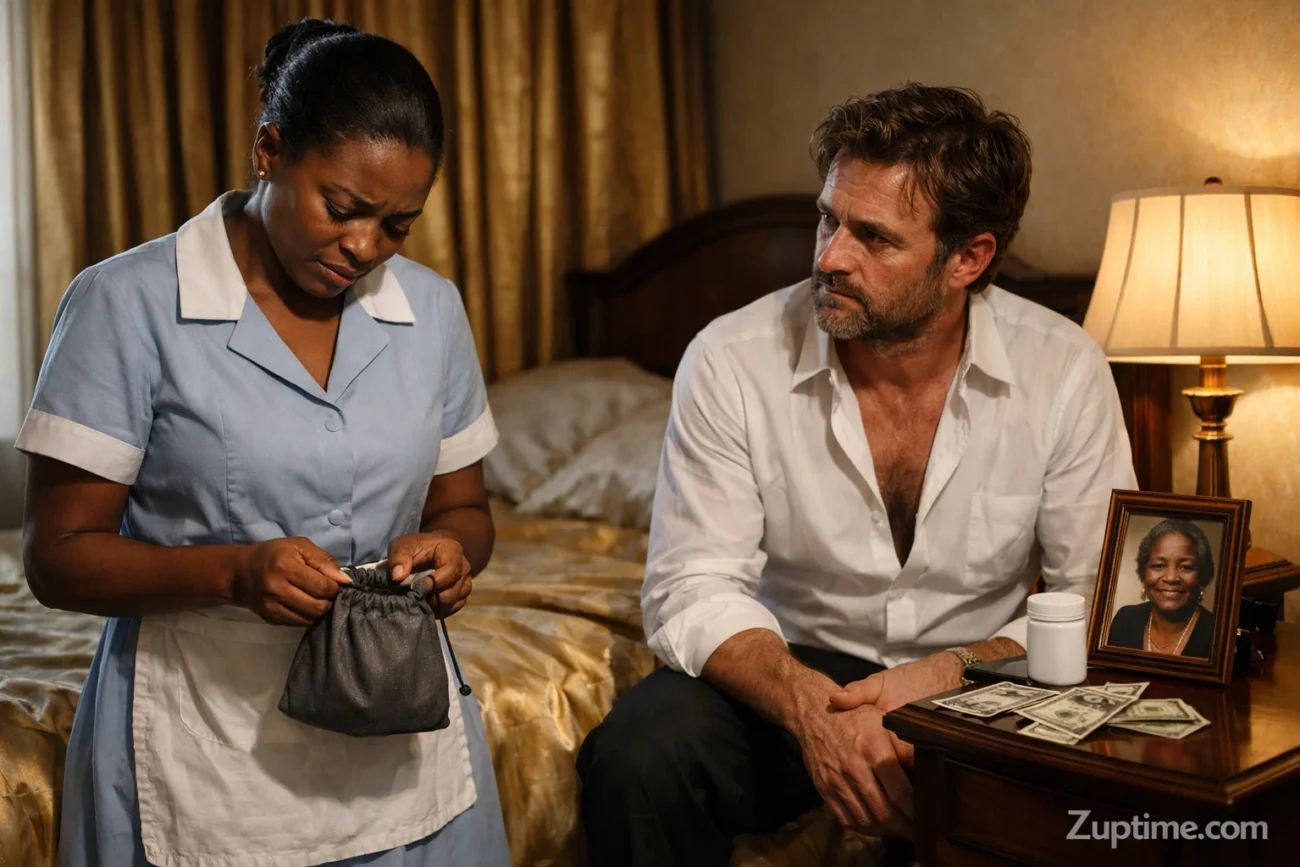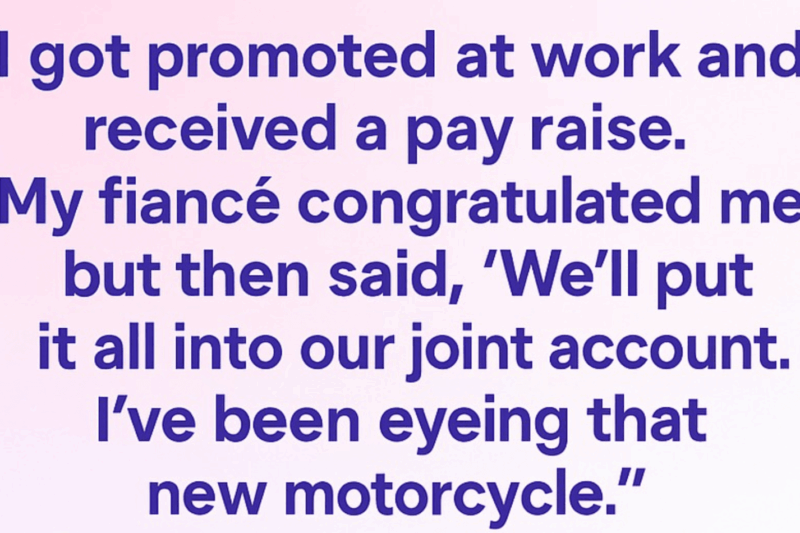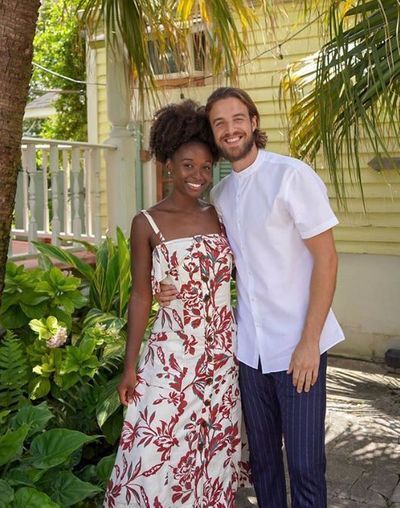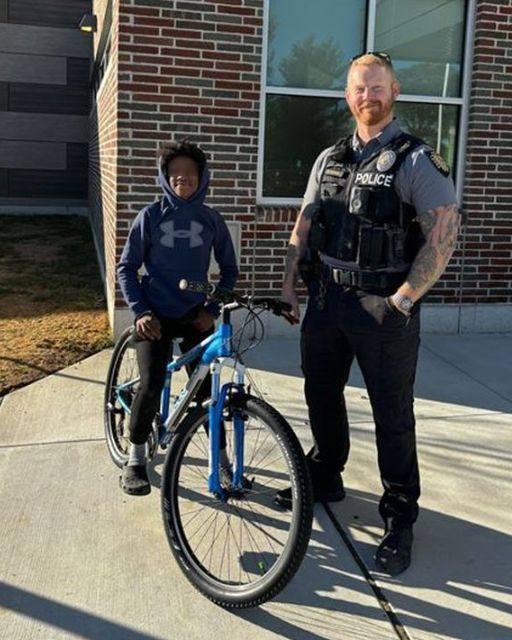What I Did for My Mother Ruined My Life
Desperation has weight. It seeps into your bones, bends your spine, and clouds your reason.
My name is Maria, and for six years, I cleaned the house of a man so wealthy that money seemed to grow from the walls.
To him, I was invisible — just the woman who polished the marble and vacuumed the Persian rugs.
Everything changed the day doctors uttered a single word: cancer.
My mother’s cancer.
The treatment was our only hope, but the cost was monstrous — a number so cruel it mocked my salary, my savings, my entire existence.
Each day I watched the color fade from my mother’s face, and with it, my sense of control.
That Thursday night changed everything.
Don Roberto, my employer, asked me to stay late to help with dinner.
When the guests had left, the mansion fell silent — except for the steady tick of a pendulum clock worth more than my home.
He poured himself a glass of aged cognac.
“Maria,” he said, his calm voice echoing through the room. “You seem different. Is something wrong?”
I lowered my head, trying to hide the tears that threatened to fall.
“It’s my mother, sir. She’s very sick.”
He nodded slowly, taking a sip.
“Health is the only thing that matters,” he said softly. “Money should never stand in the way of saving someone you love.”
Then he stepped closer, the scent of his expensive cologne wrapping around me like a net.
“Sometimes,” he murmured, “solutions are simpler than they appear. One favor for another. A fair exchange.”
His words weren’t comfort. They were a transaction.
I felt it in my gut — cold and real.
My mind split in two: the dignity my mother had taught me through sacrifice… and her life.
Her life won.
In a whisper that barely sounded like my own, I said yes.
What followed was mechanical, cold, devoid of emotion except for guilt and shame.
It happened in one of the guest rooms, on the Egyptian cotton sheets I had ironed that morning.
I dressed in silence, hollow inside, clinging to a single thread of hope — now I could afford her treatment. That made it right… didn’t it?
The next morning, I returned to work with trembling hands.
I avoided mirrors — any reflection that might remind me of what I had done.
Don Roberto acted as though nothing had happened, with terrifying normality.
By mid-morning, he called me into his office.
The room smelled of polished wood and leather.
He sat behind his pristine oak desk — no envelope, no check, not even a knowing glance.
Instead, there was a thick stack of papers covered in dense legal text.
“Sit down, Maria,” he said, his tone the same as when he gave instructions on cleaning silver candlesticks.
He slid the documents toward me. “You need to sign here. At the end.”
My heart pounded. A confidentiality agreement?
That’s what I expected. A promise of silence.
I was ready to sign anything.
But the words I found weren’t about secrecy.
The title, bold and capitalized, froze my blood:
“GESTATIONAL SURROGACY AND PARENTAL RIGHTS WAIVER CONTRACT.”
The world stopped.
Air left my lungs.
It wasn’t payment for a favor.
It was a surrogacy contract.
He hadn’t improvised the night before — he had planned it.
Every step, every gesture, had been a calculation to get something far more valuable than one night: an heir.
No emotion. No connection.
And I, in my desperation, had walked straight into the perfect trap.
“Sign it, Maria,” his voice cut through the silence, sharp as a blade.
“Otherwise, not only will your mother see no money — but I’ll make sure you never work in this city again.”
The pen on his desk felt impossibly heavy.
And there, torn between saving my mother and selling my own body and future, I signed.
That signature didn’t just buy her treatment — it surrendered my right to my first and only child.
The weeks that followed were a velvet-lined prison.
I was assigned a private doctor, a nutritionist, and an apartment in a part of the house I’d never cleaned before.
Don Roberto avoided me completely.
I was no longer a person — just a vessel, hired to carry his heir.
The initial despair faded into a numb routine, interrupted only by the soft kicks in my belly — a cruel reminder of the life growing inside me, a life that would never be mine.
The birth came quietly.
A private clinic.
No names, no questions.
When I woke after the cesarean, the room was silent — no baby’s cry.
A nurse entered, her face expressionless.
“Everything went well, Miss. The baby is healthy.”
“Can I see him?” I begged, my voice trembling.
She shook her head gently. “I’m sorry. Those are the master’s instructions.”
As I lay there, broken and empty, the door opened.
But it wasn’t Don Roberto.
It was his wife — Mrs. Elvira — a woman I had always seen as cold, untouchable.
Now her eyes were swollen, red from crying.
She came closer and took my hand. Her fingers were cold, but her voice trembled with emotion.
“Maria,” she whispered, “you deserve to know the truth. He didn’t want an heir. He wanted a replacement.”
I stared at her, confused, drained.
“Roberto can’t have children,” she continued, bitterness thick in her tone. “He never could. But his pride wouldn’t let him admit it. Not even to his mistress. You were just the last desperate option — someone poor enough not to say no.”
The revelation hit harder than anything before.
This wasn’t power. It was the act of a pathetic man trying to play God with my life to hide his own weakness.
“He’ll say the child is hers,” Elvira said, pulling her hand away. “He’s already set her up in a penthouse. I’m only staying for the money. But you… I’m sorry for you.”
Before leaving, she slipped an envelope beneath my pillow.
“It’s mine,” she whispered. “Not his. Take it — and start over. Far from here.”
I took the money — not for myself, but for my mother, still alive thanks to the hell I’d endured.
I recovered, left the city, and slowly rebuilt my life far from that house of luxury and misery.
I never saw my son again.
But years later, an investigation stripped Roberto of his fortune.
He lost everything.
And in the middle of the scandal, I read that his “wife” and supposed heir had abandoned him, taking what little remained.
Sometimes, in the silence of night, I wonder if that boy — now a man — ever feels a hollow space he can’t explain.
And I carry the truth quietly inside me:
I was his first home.
And somewhere deep within him beats a piece of the desperate, strong woman who brought him into this world — not for money, but out of a love stronger than her own pain.




